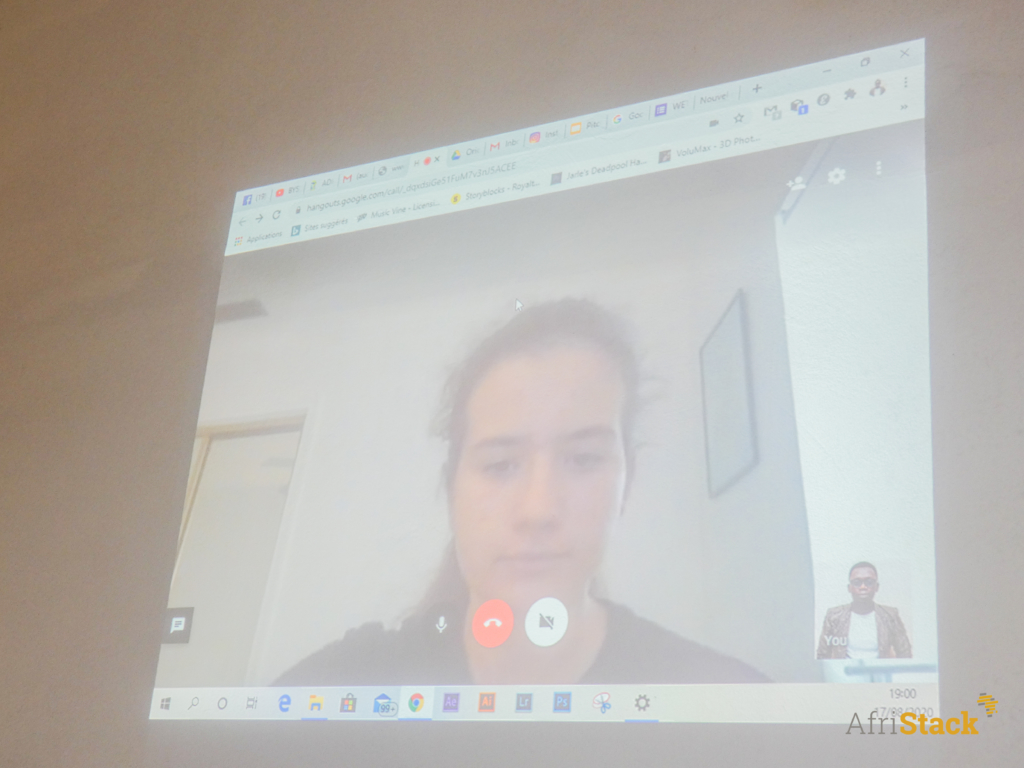Knect, a philanthropic initiative started by a 15-year-old American girl that trains Togolese children in computer skills, will soon launch in Ghana.
The plan by Chloe Clerc to expand the initiative to Ghana follows a successful pilot in neighbouring Togo.
Over 100 teenagers in Lome, the capital of Togo, have benefitted from the initiative which was started in 2020 at the height of the Covid-19 pandemic.
Ms Clerc, now 17 years, is a student at the Lycée Français de New York in the USA.
She and her colleagues, volunteering students she has recruited in the USA, connect with their counterparts in Lome occasionally to go through computer coding lessons.
Knect teaches the Togolese teens how to develop websites, games, and other digital products, using computer coding skills.
Knect works with a local NGO in Togo called AfriStack which provides hands-on training in science, technology, engineering, mathematics, and entrepreneurship to underserved communities.

The organisation has made available its working space in Lome which has some computers and good internet, from where the Togolese teens connect with the Knect team virtually.
“Improving education, particularly in subjects like coding, can give children confidence early on and job prospects in their futures. This is something I want to be a part of.
“I believe that hope can change a young person’s life, and my goal is to give as much hope as I can to the largest number of children,” Ms Clerc explained in an interview.
Following one of the training sessions in August 2020, AfriStack tweeted in French; “The online training on HTML, CSS, and JAVASCRIPT, moderated by Chloé Clerc, went well.
The participants, happy with this knowledge, are ready to apply it to their projects.”
Ms Clerc says the positive impact of the coding classes on the teenagers in Togo continues to inspire her to want to do more.
“After the first online course, one of the young Togolese girls went up to the class’ computer. With confidence, she showed her website. It made me understand how important Knect was to me.
“I couldn’t believe these students were actually learning something, skills that could someday help them build their futures,” she recounted.
Ms Clerc is also working to recruit more US student volunteers to train many more African teens in Ghana and Cameroun. She is also seeking donations of computers and other basic equipment by US companies and individuals, that can be used to train more African teens in computing.
How it all started
The idea to set up Knect came when Ms Clerc learned about coding whilst in school. She was disappointed to learn that the subject wasn’t taught in all schools around the world.
She used the web design skills she learned at school to design a website for Knect, which she used to convince the organisation in Togo to partner with her.
Her objective for setting up Knect was to allow students from her school to teach kids in Africa to code, and eventually, they allowed her to plan a trial class. Not long after, she found volunteers at her US school to become the initial group of tutors for Knect.
In this era of expanding digitisation, skills in computing are necessary for students to be able to connect to an increasingly digitised world.
“The skills in website design and other coding skills can be applied by the students if they want to start a business and to promote it… Students are taught the basics. Once you know the basics, the rest is just research,” she explained.
“The beneficiaries are usually students in their teen years. It gives them curiosity and confidence and shows them that this is an option for them…This could lead to real work opportunities,” she added.
Ms. Clerc continues to be curious about computing and the difference the computer industry can make in the lives of young people.
She has done internships with some organisations that work in the computing industry including Moonkeys in France.
Moonkeys teaches students computer science and entrepreneurship in a more fun manner.
She’s also done an internship at AI Learners, a platform that teaches kids with disabilities computing.
She looks forward to sharing the experiences she and her colleagues have gotten with young people in Africa, as Knect expands to Ghana and Cameroun.






